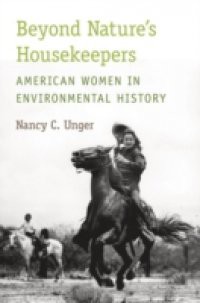From pre-Columbian times to the environmental justice movements of the present, women and men frequently responded to the environment and environmental issues in profoundly different ways. Although both environmental history and women's history are flourishing fields, explorations of the synergy produced by the interplay between environment and sex, sexuality, and gender are just beginning. Offering more than biographies of great women in environmental history, Beyond Nature's Housekeepers examines the intersections that shaped women's unique environmental concerns and activism and that framed the way the larger culture responded. Women featured include Native Americans, colonists, enslaved field workers, pioneers, homemakers, municipal housekeepers, immigrants, hunters, nature writers, soil conservationists, scientists, migrant laborers, nuclear protestors, and environmental justice activists. As women, they fared, thought, and acted in ways complicated by social, political, and economic norms, as well as issues of sexuality and childbearing. Nancy C. Unger reveals how women have played a unique role, for better and sometimes for worse, in the shaping of the American environment.





 6 (1)
6 (1) 












